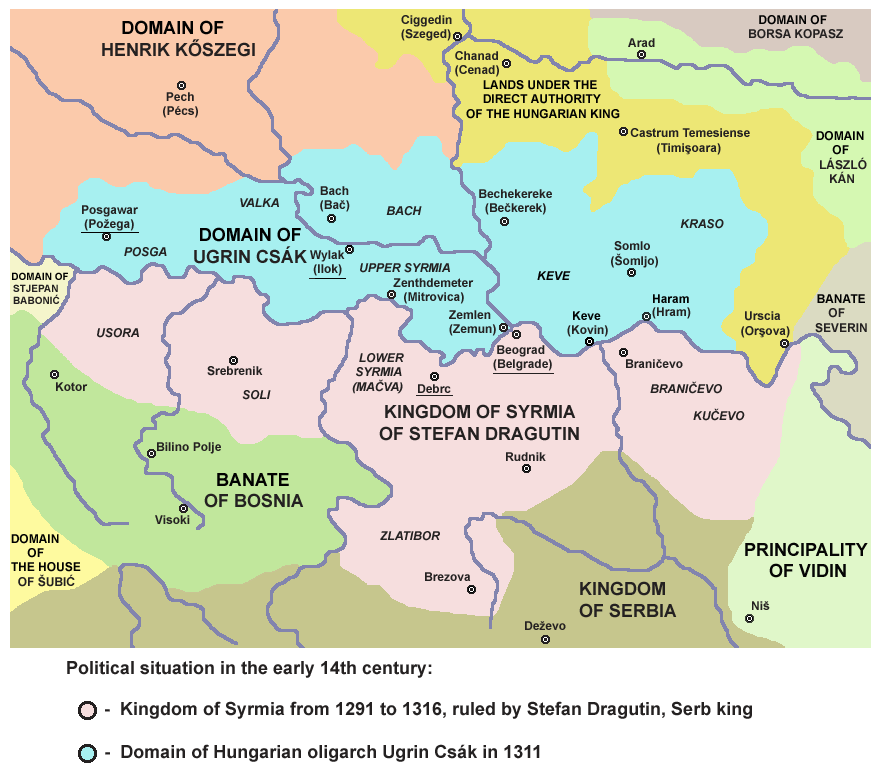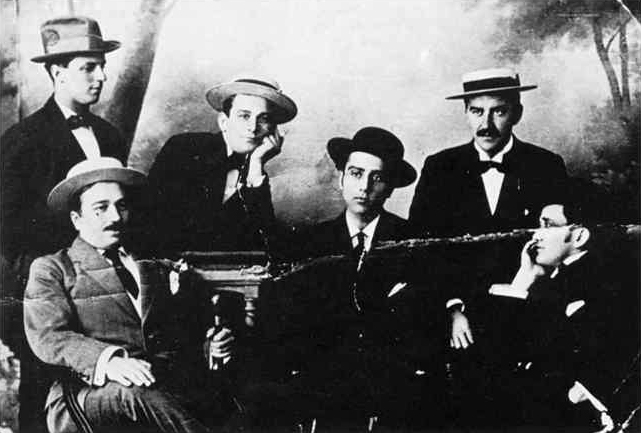|
1931 Yugoslav Football Championship
The 1931 State Championship (Serbo-Croatian: Državno prvenstvo 1931 / Државно првенство 1931) begun shortly after the previous season and was now contested during autumn and continuing through the next year ending in spring. BSK ended the Zagreb clubs' streak with record stats and an undefeated season. Jugoslavija Beograd didn't qualify for the Državno prvenstvo. Teams ''As of end of season, December 1931'' ;Managerial changes during season: *BSK – Adolf Engel replaced by Nikola Simić League table Results Winning squad Champions: BSK (coach: Antal Nemes) *Otmar Gazzari *Predrag Radovanović *Dragomir Tošić *Milorad Arsenijević *Đorđe Popović *Miodrag Jovanović *Ljubiša Đorđević *Aleksandar Tirnanić *Svetislav Glišović *Blagoje Marjanović * Nikola Marjanović *Đorđe Vujadinović *Dragoslav Virić *Predrag Antić Top scorers Final goalscoring position, number of goals, player/players and club. *10 goals – Đorđe Vujadinović (BSK) ... [...More Info...] [...Related Items...] OR: [Wikipedia] [Google] [Baidu] |
Yugoslav First League
The Yugoslav First League ( Bosnian: Prva savezna liga u fudbalu, sr-Cyrl-Latn, Прва савезна лига у фудбалу, Prva savezna liga u fudbalu, , , , , ) was the premier football league in the Kingdom of Yugoslavia (1918–1941) and Socialist Federal Republic of Yugoslavia (1945–1992). The First League Championship was one of two national competitions held annually in Yugoslavia, the Yugoslav Cup being the other. The league became fully professional in 1967. Kingdom of Yugoslavia (1923–1940) This was the first club competition on a national level for clubs from Kingdom of Yugoslavia (named the ''Kingdom of Serbs, Croats and Slovenes'' until 1930). The league was started in 1923 and the first four seasons had a cup tournament format, while the first round-robin league competition was held in 1927. In the period from 1927 to 1940 seventeen seasons were completed, with all the titles won by clubs from Croatia ( Građanski Zagreb, Concordia Zagreb, HAŠK Zag ... [...More Info...] [...Related Items...] OR: [Wikipedia] [Google] [Baidu] |
NK SAŠK Napredak
NK SAŠK Napredak is a football club from Sarajevo, Bosnia and Herzegovina. It came into existence in 2000 through the merger of SAŠK with NK Napredak. SAŠK SAŠK's history traces back to 1910 when it was founded as Hrvatski ŠK.Fudbal u Kraljevini Jugoslaviji, by Milorad Sijić, pag. 168 In 1919 it was renamed to Sarajevski amaterski športski klub (''Sarajevo Amateur Sports Club'') or SAŠK. Along with FK Slavija, it is the club from Bosnia with most participations in the Yugoslav First League in the period before the star of Second World War. Its coaches in this period were Gal, Bevanda, Giljaković, Kražić, Ferigec, Koželuh and Ivan Kezić. After World War II ended, SAŠK was banned by the authorities of Communist Yugoslavia because of its participation in the Croatian First League during the war in what was then Axis-allied Croatia. SAŠK was re-founded in 1999. Napredak NK Napredak was formed in 1994 by the Croat cultural society of the same name. Merge Two team ... [...More Info...] [...Related Items...] OR: [Wikipedia] [Google] [Baidu] |
Ljubiša Đorđević
Ljubiša Đorđević (19 June 1906 – 2 November 1944) was a Serbian footballer. He competed in the men's tournament at the 1928 Summer Olympics. He was executed for supposed collaboration with Nazi Germany Nazi Germany, officially known as the German Reich and later the Greater German Reich, was the German Reich, German state between 1933 and 1945, when Adolf Hitler and the Nazi Party controlled the country, transforming it into a Totalit ... following the liberation of Belgrade in 1944. References External links * 1906 births 1944 deaths Footballers from Belgrade Men's association football defenders Yugoslav men's footballers Yugoslavia men's international footballers Olympic footballers for Yugoslavia Footballers at the 1928 Summer Olympics OFK Beograd players Executed Serbian collaborators with Nazi Germany People killed by Yugoslav Partisans {{Serbia-footy-defender-stub ... [...More Info...] [...Related Items...] OR: [Wikipedia] [Google] [Baidu] |
Milorad Arsenijević
Milorad Arsenijević ( sr-cyr, Милорад Арсенијевић; 6 June 1906 – 18 March 1987) was a Serbian football player and manager. He was part of Yugoslavia's team at the 1928 Summer Olympics. Playing career Club He was born in Smederevo and grew up in Šabac. He started playing for the youth squad of the local team, FK Mačva Šabac, when he was 14 years old and later debuted for the main squad. After graduating highschool, he moved to Belgrade to continue his studies. He joined BSK Belgrade, one of the dominant clubs of Yugoslav football at the time, where he would spend the rest of his career as one of their main defenders.Milorad Arsenijević at Reprezentacija.rs International He earned 52 caps for the |
Dragomir Tošić
Dragomir "Dragan" Tošić (8 November 1909 – 20 June 1985) was a Yugoslav and Serbian civil engineer and previously football player. Early life Dragomir Tošić was born on 8 November 1909 in Belgrade, Kingdom of Serbia as the fourth child to Tiosav and Lukrecija Tošić. His father, Tiosav Tošić (1870–1951) was a prominent civil engineer and technical director of the Belgrade Waterworks. In 1928, he graduated with honors from the Sixth Real Gymnasium in Belgrade. His graduation essay, "Youth Without Ideals is a Weak Hope for its Nation" (''"Mladost bez ideala slaba je nada svome narodu"''), was awarded by the notable by the notable newspaper "Politika", which subsequently published it. Football career Dragomir Tošić began his football career in 1925 when he joined the youth team of BSK (Belgrade Sports Club). By 1929, he had progressed to the club's first team as a left back, earning recognition for his sharp technical skills, excellent positional play, and reputat ... [...More Info...] [...Related Items...] OR: [Wikipedia] [Google] [Baidu] |
Predrag Radovanović
Predrag Radovanović (; 27 March 1911 – 1 August 1964) was a Serbian footballer and coach. Biography Nicknamed ''Pegi'', he was born in Belgrade, Kingdom of Serbia The Kingdom of Serbia was a country located in the Balkans which was created when the ruler of the Principality of Serbia, Milan I of Serbia, Milan I, was proclaimed king in 1882. Since 1817, the Principality was ruled by the Obrenović dynast .... He began playing in the youth team of BSK Belgrade in 1928. In 1930 he debuted for the first team and stayed in the club until 1937 winning 4 Yugoslav championships (1931, 1933, 1935 and 1936). Being quite tall (around 1.90m) he was a defender, full-back, known for his speed and maneuverability, with a simple and rational style of play and he formed a strong defensive duo with Dragomir Tošić contributing to BSK's successes. [...More Info...] [...Related Items...] OR: [Wikipedia] [Google] [Baidu] |
Otmar Gazzari
Otmar Gazzari (1905 – 1987) was an Italian footballer who played as a goalkeeper. Throughout his career he played for Hajduk Split and BSK in the Yugoslav Football Championship. While playing in Hajduk Split he played together with his brother Renzo, that would continue his career in Italian Serie A also becoming B international player for the Italy national football team. With Hajduk he played a total of 37 official matches, of which 17 were in the Yugoslav Championship. Gazzari played a total of 165 matches for Hajduk and won one national championship, before moving to Belgrade to play in BSK where he would be national champion in two more occasions. Unlike his brother, that after retiring from football dedicated to tennis, Otmar opted to have a career in baseball. at Nogometni lexicon Honours Hajduk S ...[...More Info...] [...Related Items...] OR: [Wikipedia] [Google] [Baidu] |
Antal Nemes
Antal may refer to: * Andal, 8th-century poet saint of South India * Antal (given name) * Antal (surname) * 6717 Antal, a minor planet See also * Andal (other) Andal was a poet-saint of South India. Andal may also refer to: * Andal, Paschim Bardhaman, a census town in West Bengal, India ** Andal (community development block), an administrative division * Andal (crater), a crater on Mercury * Andals, a ... * Atal (other) {{Disambiguation ... [...More Info...] [...Related Items...] OR: [Wikipedia] [Google] [Baidu] |
FK Mačva Šabac
Fudbalski klub Mačva Šabac () is a Serbian professional football club based in Šabac, which competes in the Serbian First League. One of the oldest football clubs in Serbia, their nickname is (), which was first used in 1927, when the Uruguay national football team were one of the best teams in the world, and due to local people and media comparing Mačva's style to that of the Uruguayan team, the main daily newspaper ''Politika'' consistently used the nickname . In the period of Yugoslavia, Mačva mostly played in the lower tiers of the football system but did spend two seasons in national top flight of Yugoslavia in the 1951 and 1952 seasons. Afterwards, they would spend the next six decades in the Yugoslav lower-leagues but were a stable and respected lower-tier club in the country. Mačva reached the Serbian SuperLiga for the first time ever in the 2017–18 season, returning to the top tier of Yugoslav/Serbian football for the first time in over six decades. History ... [...More Info...] [...Related Items...] OR: [Wikipedia] [Google] [Baidu] |
Mačva Šabac
Mačva ( sr-Cyrl, Мачва, ; ) is a geographical and historical region in the northwest of Central Serbia, on a fertile plain between the Sava and Drina rivers. The chief town is Šabac. The modern Mačva District of Serbia is named after the region, although the region of Mačva includes only the northern part of this district. A small northern part of Mačva region is in the Autonomous Province of Vojvodina, in the Syrmia District. Name The region is named after a town of Mačva, which existed in the Medieval Ages near the river Sava. In the past, the region was also known as ''Lower Srem'', while the neighbouring region on the northern bank of the river Sava (present-day Srem) was known as ''Upper Srem''. In Serbian Cyrillic, the region is known as Мачва, in Serbian Latin, Bosnian and Croatian as ''Mačva'', in Hungarian as ''Macsó'' or ''Macsóság'', in Turkish as ''Maçva'', and in German as ''Matschva''. History Throughout history, the region of Mačva has s ... [...More Info...] [...Related Items...] OR: [Wikipedia] [Google] [Baidu] |
Hajduk Split
Hrvatski Nogometni klub Hajduk Split, commonly referred to as Hajduk Split (), is a Croatian professional football club based in Split, that competes in the Croatian First League, the top tier in Croatian football. Since 1979, the club's home ground has been the 33,987-seater Stadion Poljud. The team's traditional home colours are white shirts with blue shorts and blue socks. The idea to form a football club was started by a group of Split students who were studying in Prague. After observing a game between Slavia and Sparta Prague, the group gathered at the U Fleků tavern and talked of creating a football club at home. When they returned to Split, they put their plan in motion and Hajduk was founded on 13 February 1911. Between the early 1920s and 1940, Hajduk regularly participated in the Kingdom of Yugoslavia national championship. Following World War II and the formation of the Yugoslav league system in 1946, Hajduk went on to spend the entire SFR Yugoslavia period at th ... [...More Info...] [...Related Items...] OR: [Wikipedia] [Google] [Baidu] |

